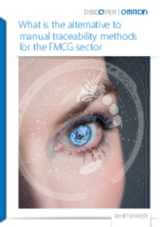Combatting counterfeiting, promoting ethical sourcing and minimising recalls
Published on 26 April, 2023 in Industry 4.0
In the third blog in this series on Traceability we will discover how counterfeiting has become a major issue in the food and beverage sector and how effective labelling can aid in a host of verification related tasks.
Counterfeiting has become a major problem in the food and beverage industry as the market becomes more globalised. Several types of fraud exist, they can appear alone or in a combination in food fraud.
- Dilution - mixing a liquid ingredient of high value with a liquid of lower value.
- Substitution - replacing an ingredient, or part of the product, of high value with another ingredient, or part of the product of lower value.
- Concealment - hiding the low quality of food ingredients or product.
- Mislabelling - placing false claim on packaging for economic gain.
- Unapproved enhancement - adding unknown and undeclared materials to food products to enhance the quality attributes.
It has been suggested that following are the most common sources of food counterfeiting: olive oil, milk, honey, saffron, orange juice, apple juice, grape wine, vanilla extract and fish.
With the increase in imports coming from developing countries, it’s crucial to have a traceability system in place to confirm that products are authentic. In addition, consumers are demanding information on the sources of raw materials going into foods to ensure that the products are ethically sourced. This is most applicable to confection goods containing nuts or cocoa, as these raw materials are often sourced using child labour or another form of labour in violation of international law
Problems with product authenticity don’t always come from outside, however. Mistakes in manufacturing can result in packages that say they contain one thing but actually contain another. As anyone with a peanut allergy knows, this is a potentially life-threatening issue. Food and beverage packaging must be extremely specific about what’s inside, and if there’s an information mismatch, the affected product needs to be recalled immediately. In fact, errors on labels and packaging are the most common cause of food and beverage recalls.
One of the best ways to combat labelling mistakes is to implement an industry-standard label verification system. Print quality inspection systems are capable of performing a wide variety of verification-related tasks, including optical character recognition (OCR), optical character verification (OCV), master-to-label comparison and data and code matching. These features help companies ensure accuracy and data integrity, identify defects and avoid liability.
Since recalls can have a catastrophic impact on a company’s reputation as well as its profits, minimising errors on labels and packaging is essential. Companies that include any sort of repackaging process as part of their operations should be doubly careful to ensure that product identifiers are thoroughly tracked and that labels are comprehensively verified. This cost comes on top of the expenses that are directly associated with taking all the impacted product off the market.
Contact us for more information
